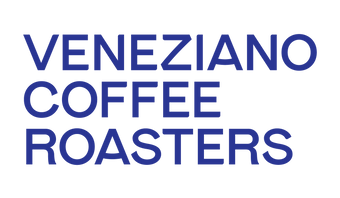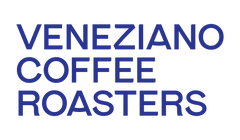Having found its sovereignty in 2002, Timor-Leste is one of the world's youngest countries and an emerging coffee origin. As the country finds its stability, the development of a sustainable agriculture sector including coffee is rapidly becoming the most important pillar for the transformation of the country's economy.
How Raw Material is addressing the economic challenges
Timor-Leste faces enormous economic upheaval, as its oil reserves begin to run dry. In its place, coffee is set to become the nation's most vital export. Here at Veneziano we work with some incredible producers including the team at Raw Material (RM) who have provided us with a number of coffee microlots from Timor-Leste over the last 3 years.
RM focus their work in Timor-Leste in the municipality of Ermera. One of thirteen municipalities in the country, it is home to the largest coffee production volumes, whilst almost 60% of the municipality's population live below the poverty line. Coffee is Timor-Leste’s most important crop, and with the end of oil income, improving the coffee sector is of critical importance. Coffee is the second-highest earner for the country after oil, with 37% of households dependent on coffee for income.
However, productivity is extremely low, and profitability is often low and volatile due to almost all coffee being sold in the commodity market for a discounted C price. RM have a unique framework to focus on where and how they work to maximise the potential for economic and social impact. Their plan in Timor-Leste involved meeting with groups of producers in villages across Atsabe to hear about how the coffee market has served them in recent history.
Together RM and local producers developed a plan for a more prosperous future through:
- Sustainably raising and maintaining the quality of Atsabe's coffee above 80 points
- Connecting with roasters like Veneziano who want to commit to a long-term partnership
- Systematically solving the diverse challenges that exist in selling within the specialty coffee market from financial, legal, cultural, infrastructural and technical
The Raimutin Wet Mill
RM built their first custom wet mill and processing centre in Timor Leste in April 2018, in Atsabe, Ermera. Designed in-house, the processing centre uses gravity to move coffee through the stages and utilises local materials wherever possible.
The Raimutin wet mill serves as a central hub for processing the cherry of the producers RM work with across the Ermera municipality. Sitting at 1400 MASL, the wet mill has served not only as a place to purchase, process, and dry cherry, but as a meeting point for the village chiefs and neighbourhood leaders and RM. The Raimutin Wet Mill has also served as hub for training courses in cultivation, picking and processing for local producers.
Natural and Washed Process coffees
RM present each year to Veneziano a selection of natural and washed lots from the suco (village) of Parami. Cherry is collected from Parami at an altitude of 1800 MASL and processed daily at the Raimutin wet mill.
Cherry is first floated in water, to separate the fruit by density. The higher the density, the higher the quality of the coffee. This leaves the low density, less mature cherries to float to the surface, which are easily removed from the water.
The Raimutin station staff then meticulously hand-sort the freshly picked and sorted cherry, removing all damaged or underripe fruit. The cherry is then transported to raised beds, where they are dried in high sun for three weeks. The staff turn the lots regularly to ensure even airflow and sun contact. When the cherries have reached their perfect drying level, the seeds are removed from the cherry and prepared for export.
The remaining cherry is not discarded, rather, it is saved for redistribution as fertiliser to the farmers who grew them.
Timor Leste Parami Washed
We are delighted to present for a 4th year the incredible TImor Leste Parami Natural. Now available at our microlot store and in our microlot subscription.




